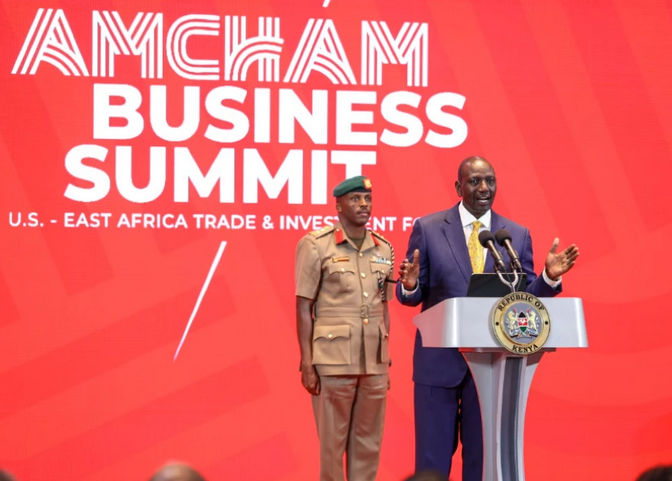Kenya is eyeing a significant jump in the revenue from digital services taxes from a new global taxing platform spearheaded by the Organisation for Economic Co-operation and Development (OECD).
The plan is meant to curb tax evasion by requiring multinationals to re-allocate a cut of their profits to countries where they have operations.
If Kenya signs up to the programme, it is estimated that the Kenya Revenue Authority has the potential to net between Sh3.3 billion ($25 million) and Sh5.3 billion ($40 million) in taxes.
KRA Digital Service Tax lead Nickson Omondi said this represents more than 10 times compared to between Sh400 and Sh500 million that the taxman currently collects from DST annually. This, he noted, is a tax for every company with operations in Kenya, “unlike DST which is only for digital service providers”.
Last week, President William Ruto announced that the DST, levied on income derived or obtained in Kenya from services offered through a digital marketplace, would be aligned with the OECD framework.
The president said the growth of digital commerce has pushed many countries to implement Digital Services Tax measures on income derived in their tax jurisdictions.
Kenya, Dr Ruto stated, has also done the same.
“Following discussions with players in this sector, we have made a commitment to review this tax regime and align it with the two-pillar solution currently being developed by the OECD inclusive framework. The framework will guide the taxation of digital commerce transactions,” said the President during the American Chamber of Commerce Regional Business Summit.
Under Dr Ruto’s predecessor, Uhuru Kenyatta, Kenya didn’t expressly support the two-pillar framework, citing clauses in the agreement which would have seen the end of the digital service tax which is currently charged at the rate of 1.5 percent of sales made by foreigners in the country.
The new OECD Inclusive Framework, which seeks to deal with challenges of base erosion and profit shifting by multinationals, has two pillars, with the first being harmonising taxing rights more closely with local market engagement.
Under Pillar one, a portion of profits of the largest and most profitable groups is allocated to market jurisdictions.
With the first pillar, which targets large multinationals with €20 billion in worldwide revenues and a profit before tax margin of at least 10 percent, the profits will be allocated to market jurisdictions irrespective of any physical presence in those jurisdictions.
Pillar two introduces a minimum corporate income tax of 15 percent, with the parent company forced to top-up should the tax fall below this level.
While there have been minimum hitches on the application of Pillar two, which is set to take effect in January next year, the mechanics for Pillar One are yet to be completed.
Mr Omondi said Kenya has to ratify the convention, which means taking it through the whole process of enacting a law starting with public participation.
“Until then, we will keep our DST,” he said.
Kenya has room to increase the DST from 1.5 percent to six percent charged by other countries, earning it Sh2.4 billion in revenues. KRA collected Sh174 million in DST in the six months to December 2022, keeping it on course to beat the full-year total of Sh241 million that was recorded in the year ending June 2022.
KRA says the revenue collectd from digital service providers including tech giants Google, Netflix, Meta, Twitter and Microsoft, is expected to beat the Sh300 million by June. KRA sought to register 50 extra businesses in the financial year ending June 2023 but has already surpassed this target with 64 companies now on the DST taxes net .
Under the Income Tax (Digital Service Tax), 2020 law, all businesses selling services online are required to pay a flat tax of 1.5 percent on the value of services offered through digital platforms after its implementation on January 1, 2021, in addition to VAT of 16 percent.
Services targeted under the taxes include e-books and movie sales, dating sites, music, and games, and subscription-based media including news, magazines and digital content.






